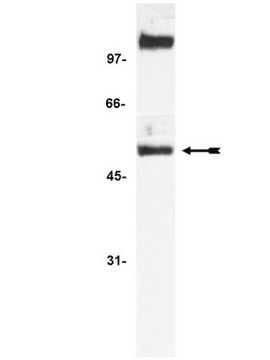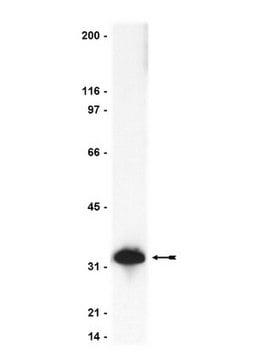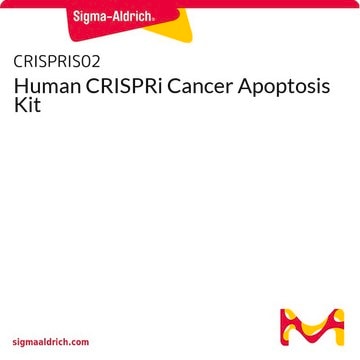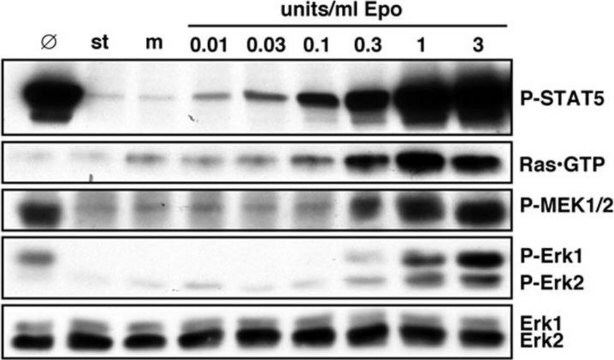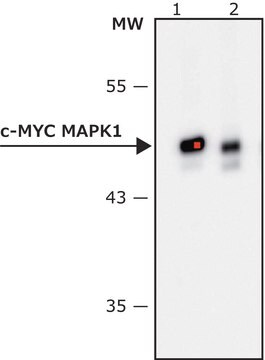05-361
Anti-NFκB p52 Antibody
Upstate®, from mouse
Synonym(s):
DNA-binding factor KBF2, Lymphocyte translocation chromosome 10, Oncogene Lyt-10, nuclear factor of kappa light chain gene enhancer in B-cells 2, nuclear factor of kappa light polypeptide gene enhancer in B-cells 2, nuclear factor of kappa light polypept
About This Item
Recommended Products
biological source
mouse
Quality Level
antibody form
purified antibody
antibody product type
primary antibodies
clone
monoclonal
species reactivity
human
manufacturer/tradename
Upstate®
technique(s)
electrophoretic mobility shift assay: suitable
immunoprecipitation (IP): suitable
western blot: suitable
isotype
IgG2a
NCBI accession no.
UniProt accession no.
shipped in
dry ice
target post-translational modification
unmodified
General description
Specificity
Immunogen
Application
4 µg of a previous lot immunoprecipitated NFκB p52 and its p100 precursor from 500 µg of HeLa nuclear extract cell lysate.
Gel Shift Assay:
A previous lot of this antibody used 2 µg per gel shift assay (Bours, V., 1993).
Epigenetics & Nuclear Function
Transcription Factors
Quality
Western Blot Analysis:
0.5-2 µg/mL of this lot detected NFκB p52 and its p100 precursor in HeLa nuclear extract. A previous lot detected NFκB p52 and its p100 precursor in human Raji cell, but not in mouse 3T3/A31 cell and rat PC 12 cell lysates. Highly recommended for western blotting.
Target description
Physical form
Storage and Stability
Handling Recommendations:
Upon receipt, and prior to removing the cap, centrifuge the vial and gently mix the solution. Aliquot into microcentrifuge tubes and store at -20°C. Avoid repeated freeze/thaw cycles, which may damage IgG and affect product performance.
Analysis Note
Positive Antigen Control: Catalog #12-303, Jurkat cell lysate.
Other Notes
Legal Information
Disclaimer
Not finding the right product?
Try our Product Selector Tool.
recommended
Storage Class Code
12 - Non Combustible Liquids
WGK
WGK 1
Flash Point(F)
Not applicable
Flash Point(C)
Not applicable
Certificates of Analysis (COA)
Search for Certificates of Analysis (COA) by entering the products Lot/Batch Number. Lot and Batch Numbers can be found on a product’s label following the words ‘Lot’ or ‘Batch’.
Already Own This Product?
Find documentation for the products that you have recently purchased in the Document Library.
Our team of scientists has experience in all areas of research including Life Science, Material Science, Chemical Synthesis, Chromatography, Analytical and many others.
Contact Technical Service